The world of manufacturing is as diverse as it is essential, with certain sectors continuously thriving regardless of economic trends. Delving into these evergreen areas can reveal business opportunities that promise stability and growth. As we take a closer look at the manufacturing landscape, it becomes clear that some products never lose their demand due to their indispensable nature.
With changing consumer preferences and a growing emphasis on sustainability, there's an increasing need for businesses that can adapt and provide innovative solutions. This article aims to uncover manufacturing ideas that not only stand the test of time but also align with current market needs. Whether you're a seasoned entrepreneur or a newcomer exploring the industrial realm, understanding what lies ahead can help in making informed decisions and devising effective strategies.
- Understanding Evergreen Manufacturing
- Sustainable and Reusable Products
- Healthcare and Personal Hygiene Essentials
- Food and Beverage Production
Understanding Evergreen Manufacturing
In the dynamic world of commerce, some things remain constant, much like the North Star for seafarers of old. When it comes to the manufacturing industry, evergreen businesses are those that are perpetually in demand, undeterred by economic ebbs and flows. These businesses thrive because they produce goods that people consider essential, regardless of the times they live in. The predictability offered by such businesses provides a comforting buffer against market uncertainties, which is a boon for entrepreneurs.
One of the fundamental aspects of evergreen manufacturing is its ability to adapt. While the core demand for products remains steady, consumer preferences can shift subtly over time. For instance, the clothing manufacturing sector has seen an upswing in the demand for sustainable and eco-friendly materials. Textiles made from organic fibers or recycled materials are not only popular but are increasingly becoming the norm. This shift highlights how evergreen industries are those that evolve alongside consumer awareness and technological innovations, staying relevant while maintaining their essential nature.
Let's consider the health and hygiene product sector, which has steadfastly endured as a crucial manufacturing domain. In recent years, especially post-pandemic, there has been a noticeable rise in the production of personal hygiene products like sanitizers, soaps, and masks. This enduring demand is driven by a heightened awareness of personal health and safety. According to a report by Allied Market Research, the global hand sanitizer market alone is expected to grow to $3.6 billion by 2027, showcasing how certain products adapt to societal needs and concerns.
The evergreen nature of this sector isn't just about consistent need; it's about meeting these needs efficiently and innovatively. Businesses that successfully blend traditional manufacturing with modern automation and sustainable practices are setting new benchmarks. For example, some companies are investing in high-tech automation to improve production efficiency while simultaneously reducing waste, showcasing their commitment to both quality and environmental stewardship. A notable quote by Elon Musk captures this sentiment beautifully:
“Good ideas are always crazy until they’re not.”This underscores the vision required to maintain relevance in the evergreen market.
Moreover, consumer electronics manufacturing continues to hold its ground, driven by relentless technological advancements and the ever-growing hunger for new gadgets. From smartphones to smart homes, the appetite for updated technology persists. The production of these electronics entails a complex interplay between design innovation and massive industrial capability, placing it firmly in the evergreen camp. A crucial component of their success lies in the ability to regularly introduce new models that capture the latest trends and technological advancements.
To sum up, understanding evergreen manufacturing is a matter of recognizing those industries with enduring stability and intrinsic adaptability. They offer a blueprint for businesses that aspire to remain unshaken by the whims of the market. While specifics may evolve, the core products remain steadfast in fulfilling basic human needs. Entrepreneurs aiming to break into these markets must stay vigilant, embracing change while steadfastly providing what people cannot live without. This strategic thinking will ensure both continual demand and business sustainability.

Sustainable and Reusable Products
In today’s ever-evolving consumer landscape, the cry for sustainable and reusable products resonates louder than ever. Growing environmental awareness is leading industries to rethink manufacturing processes and sources, focusing on creating items with reduced ecological footprints. Consumers have shown a robust preference for goods crafted with the planet in mind, and this sentiment is steering a significant shift in business practices globally. The rise of sustainable products is not just a trend; it is a response to the necessity for economic and environmental resilience, presenting both moral imperatives and lucrative market opportunities.
As businesses strive to align with eco-friendly practices, reusable products have gained incredible traction across various sectors. For instance, the fashion industry has seen a remarkable growth in eco-conscious brands emphasizing materials like recycled cotton and polyester. Similarly, houseware brands are producing durable alternatives to single-use plastics, such as stainless steel or bamboo utensils and containers. This movement is not restricted to consumer goods alone, as larger industries, such as construction and automotive, are gradually adopting sustainable materials and processes. By replacing traditional practices with green methodologies, manufacturers can tap into a market that values both quality and environmental stewardship.
Numerous studies underline the enduring importance of sustainability in manufacturing. According to the McKinsey report, over 70% of consumers show a willingness to pay a premium for sustainable products. This trend is guiding corporate strategies across the board. Businesses venturing into this domain should prioritize transparency in sourcing and production models, as informed consumers are increasingly seeking guarantees of ethical practice. The integration of global standards like those set by ISO in environmental management bolsters credibility, offering companies a competitive edge in this expanding market.
Moreover, the core principles of sustainability concentrate on the efficient use of resources, which results in cost savings alongside environmental benefits. This balance between environmental stewardship and economic gain is enticing companies to innovate and stay relevant in a competitive market. Manufacturing business firms focusing on transforming production lines into eco-friendly units find themselves at a junction of innovation and practicality. By investing in technology and sustainable practices, manufacturers can reduce waste, lower emissions, and ultimately, enhance their bottom line.
The worldwide challenges posed by climate change further necessitate this shift toward sustainable manufacturing. As global temperatures and resource scarcity become more pressing issues, finding ways to reduce carbon footprints gains urgency. For an aspiring entrepreneur or established company, understanding this dual commitment to economy and ecology could be crucial. An unyielding emphasis on sustainability not only meets current demands but also safeguards future growth, ensuring prosperity in an environmentally conscious market.
“The transition to a sustainable future is not just good for the planet; it's lucrative. Those who innovate today will reap the rewards tomorrow,” remarked Jane Goodall, a renowned environmentalist.
In conclusion, those entering the realm of sustainable and reusable products will find themselves poised at an intersection of ethical duty and profitable business. As industries continue to evolve, blending innovation with sustainability not only fulfills immediate consumer demands but secures a thriving future in an ever-growing market. Embracing these principles fosters businesses that are not just economically viable, but environmentally responsible as well, paving the way for a more sustainable tomorrow.

Healthcare and Personal Hygiene Essentials
In today's fast-paced world, the significance of healthcare and personal hygiene essentials cannot be overstated. These are the backbone of modern living, ensuring that we remain healthy, comfortable, and protected against potential health threats. The demand for such products has been on a consistent rise, driven by increased awareness and the occasional global health crisis. From hand sanitizers to medical-grade face masks, the market is ripe with opportunities for those looking to venture into this essential sector. Notably, personal hygiene items such as soaps, shampoos, and dental care products are now seen as everyday necessities, further boosting their demand. The awareness surrounding hygiene practices and their importance in preventing illness has compelled consumers to prioritize these essential items, making the manufacturing business of these goods a highly lucrative option.
What's particularly interesting is the link between evolving consumer behavior and the rise of healthcare product demand. The global pandemic underscored the need for robust hygiene practices, which in turn fueled a massive increase in the production of sanitizing agents, disposable gloves, and protective gear. Such incidents have had a lasting impact on consumer habits, leading to a more health-conscious global population. According to a report by the Global Wellness Institute, the personal hygiene products sector is predicted to grow exponentially by 2027 as more individuals integrate these items into their daily routines, reflecting their ongoing confidence in these products for maintaining health and wellbeing. The manufacturing of healthcare and hygiene essentials requires a blend of rigorous quality controls, innovative materials, and a deep understanding of consumer needs. The market's growth is accompanied by a surge in innovation as manufacturers experiment with eco-friendly materials and advanced formulations, addressing the dual consumer demands for efficacy and sustainability.
The continual demand for healthcare essentials also gives rise to numerous innovative trends. Manufacturers are increasingly focusing on eco-friendly packaging and sustainable production processes. Not only does this align with consumer preferences, but it also paves the way for new business models and market segments. The evolving landscape is fertile ground for companies to explore biodegradable materials and reusable packaging, opening new avenues for both established brands and newcomers. This trend isn't just limited to smaller eco-focused firms; large corporations are also making strides to become more environmentally conscious. Initiatives such as refill stations for liquid hand soaps and shampoos in retail stores are testament to the industry's shift towards sustainability. This change is driven by consumers who are equally concerned about climate impact as they are about personal hygiene. With a 30% increase in demand for sustainable healthcare products over the past few years, there's no denying the importance of innovation in contemporary manufacturing strategies. In the words of John Hopkins, noted economist and industry analyst,
"The future of manufacturing lies in its ability to adapt and innovate, especially in sectors as critical as healthcare and personal hygiene."
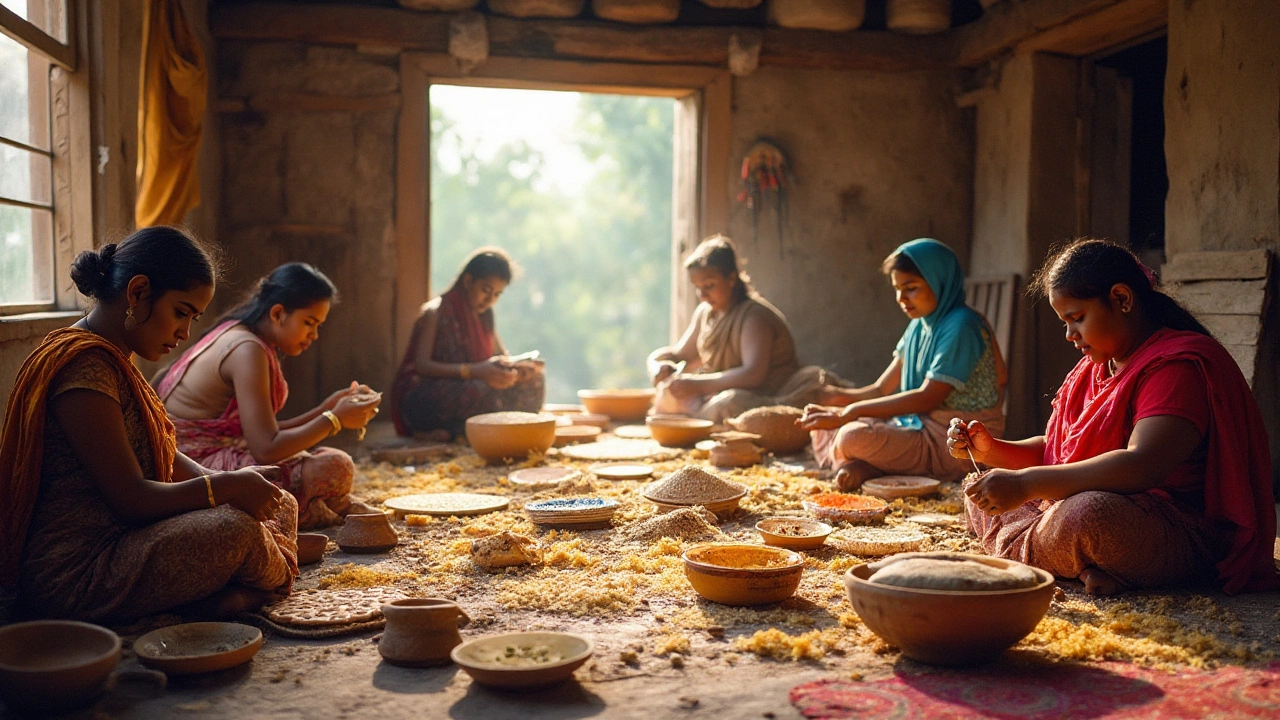
Food and Beverage Production
The food and beverage industry is one of the cornerstones of manufacturing businesses, providing an essential service that caters to the basic human need for sustenance. Spanning a wide range from artisanal products to mass-produced goods, this sector exhibits a resilience and adaptability that many other industries envy. Globally, the market is significant, with an expected annual growth rate of around 7% according to some market analysts, highlighting both opportunity and competition. Key players often find their niche in quality differentiation, innovative packaging, or targeting specific dietary needs, which can include everything from vegan alternatives to gluten-free staples.
As food security becomes a subject of increasing importance, especially in urban centers with escalating populations, the demand for reliable and efficient production processes grows exponentially. This brings into focus the importance of sustainable practices within food and beverage production. Companies are now leaning towards reducing their carbon footprint by utilizing eco-friendly packaging and sustainable sourcing. Implementing these strategies not only enhances brand reputation but also potentially decreases costs in the long run.
"The food we choose to produce and consume impacts our economy, society, and environment," states Michael Pollan, renowned author and expert on food sustainability. "Such decisions go beyond mere economics; they can drive meaningful change in the world."
An essential element in this sector is innovation, which plays a crucial role in staying ahead of consumer trends and predicting future demands. This could involve exploring new tastes and flavors or identifying healthier, natural alternatives to additives. Besides manufacturing the goods, attention is also directed towards how they are stored and transported, ensuring products remain fresh and safe upon reaching their final destination. Companies that excel in logistics and supply chain management often find themselves ahead of the competition.
Technology also enters the mix, with developments such as automated production systems and precision agriculture tools, aiming to optimize both yield and quality. With the advent of smart farming, data is leveraged to make informed decisions that improve crop resilience and efficiency. The rise of vertical farming and hydroponics brings additional potential, especially in urban settings where real estate is at a premium. All these advancements offer avenues for new entrepreneurs to introduce business models that were once considered improbable but now hold promise for disrupting the status quo.
- Identify emerging trends in consumer preferences
- Focus on sustainable and ethical production methods
- Leverage technology to enhance efficiency
- Innovate with product offerings that meet specific dietary needs
- Develop a robust logistics and supply chain strategy
The journey within the food and beverage industry is certainly not linear, often involving assorted challenges that test patience and ingenuity. However, the rewards lie in knowing that one's efforts contribute directly to the well-being of societies everywhere. Recognizing this, astute entrepreneurs who appreciate the nuances of diverse consumer bases and respond proactively to societal shifts with agility and insight often find themselves at the forefront of this evergreen industry.
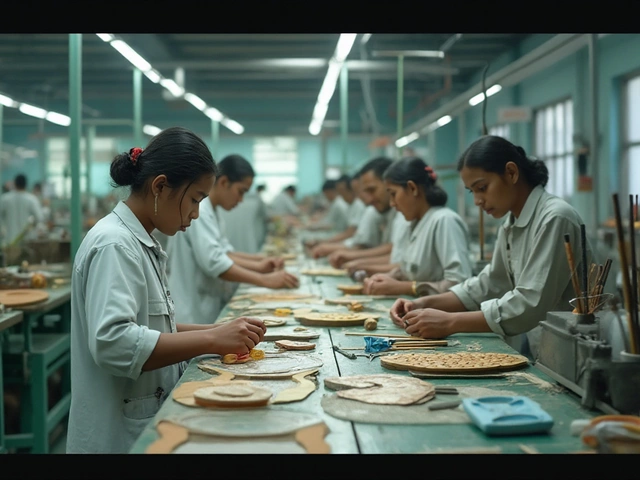

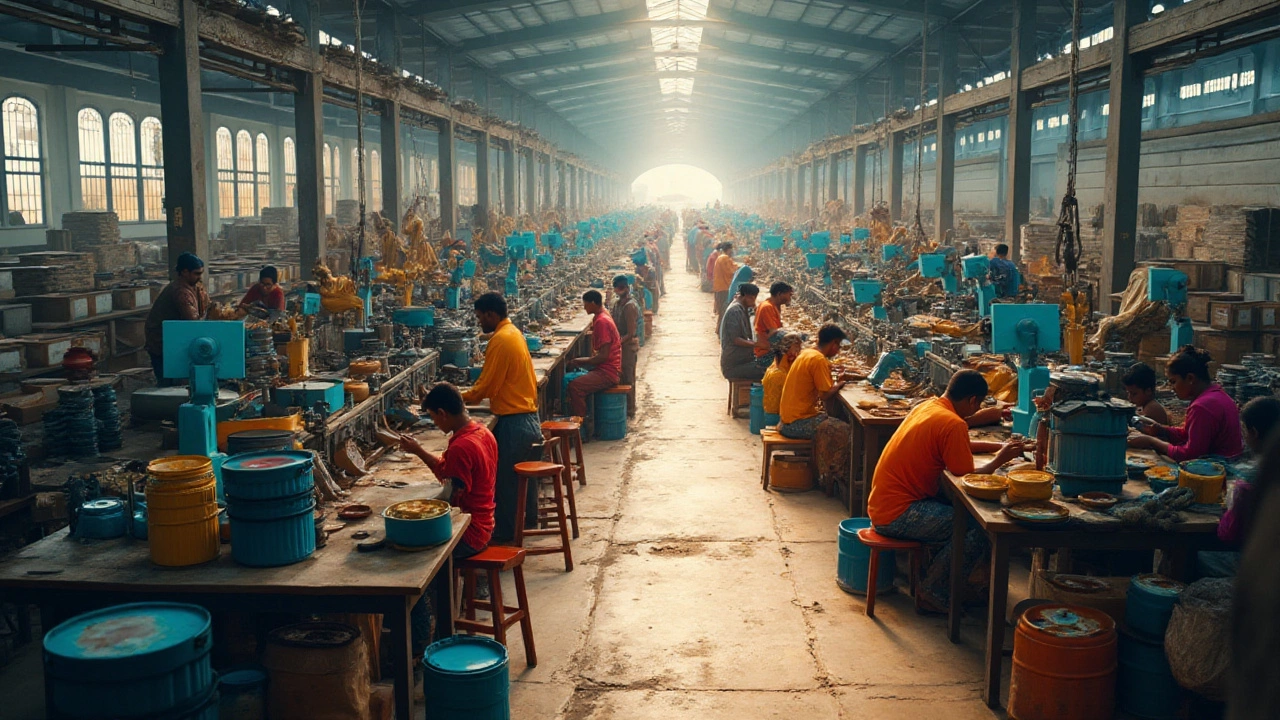

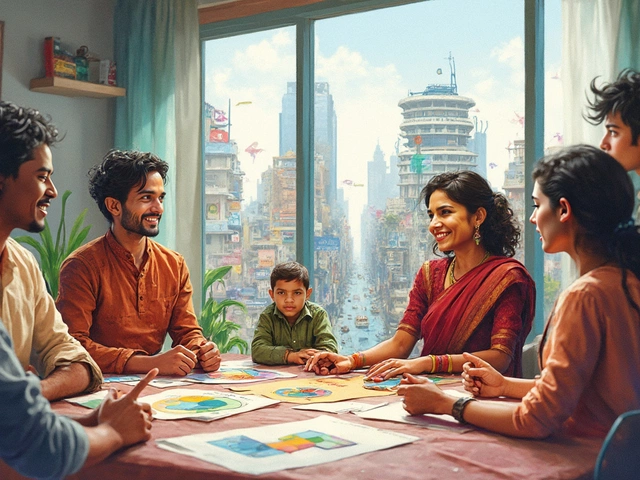
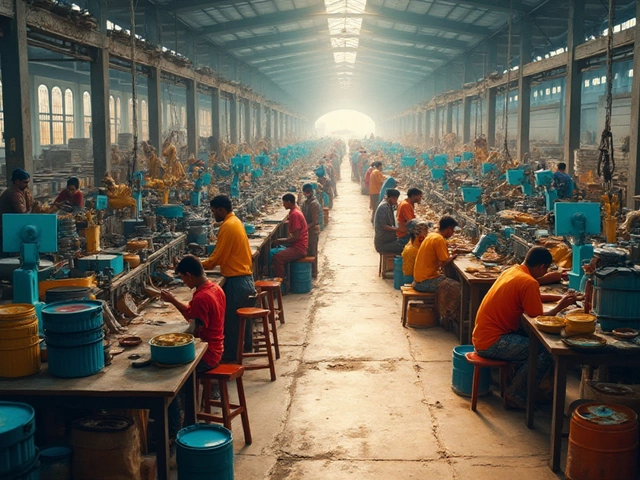
Write a comment